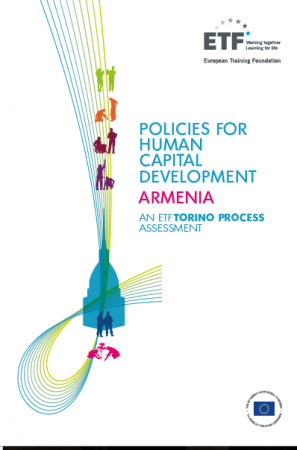The European Training Foundation (ETF) assessment provides an external, forward-looking analysis of a country's human capital issues and vocational education and training (VET) policies from a lifelong learning perspective. It identifies challenges related to education and training policy and practices that hinder the development and use of human capital. It takes stock of these challenges and offers recommendations for possible solutions.
These assessments are central to the Torino Process, an initiative launched by the ETF in 2010 with the aim of providing periodic reviews of VET practises in the wider context of human capital development and inclusive economic growth. In order to make a high-quality assessment of VET policy from a lifelong learning perspective, the process builds on four key principles: ownership, participation, holistic analysis, and evidence-based analysis.
For ETF, human capital development is defined as the provision of support to countries for the creation of lifelong learning systems that provide opportunities and incentives for people to develop their skills, competences, knowledge and attitudes throughout their lives for the sake of employment and the realisation of their potential, and as a contribution to prosperous, innovative and inclusive societies.
The purpose of the assessments is to provide reliable information to assist in the planning and monitoring of national education and training policies for human capital development. They also aim to help promote dialogue with the European Union and other donors about programming and policies to support initiatives in this realm.
The ETF assessments rely on evidence from countries collected with the use of a standardised reporting template called the National Reporting Framework (NRF). Information is gathered through a participatory process that involves a wide variety of actors and a high degree of ownership by the country. The findings and recommendations of the ETF assessment have been shared and discussed with national authorities and beneficiaries.
The assessment report starts with a brief description of the country's strategic plans and national policy priorities (Chapter 1). It then presents an overview of issues related to the development and use of human capital in the country (Chapter 2), before moving on to an in-depth discussion of problems in this area that the ETF believes require immediate attention (Chapter 3). Chapter 4 offers overall conclusions.
The annexes provide additional information: a summary of the recommendations (Annex 1) and an overview of the country's education and training system (Annex 2).
ETF would like to thank to all of the members of the Torino Process working group in Armenia who worked on the Torino Process National Report. Particular thanks should be sent to the Ministry of Education, Science, Culture and Sport, which provided valuable support through the whole process. The National Torino Process Report compiled by the country itself can be found here: https://openspace.etf.europa.eu/trp/torino-process-2018-2020-armenia-national-report.
